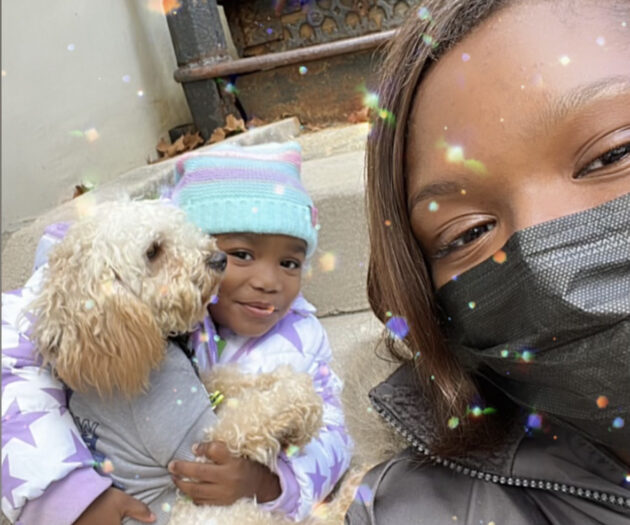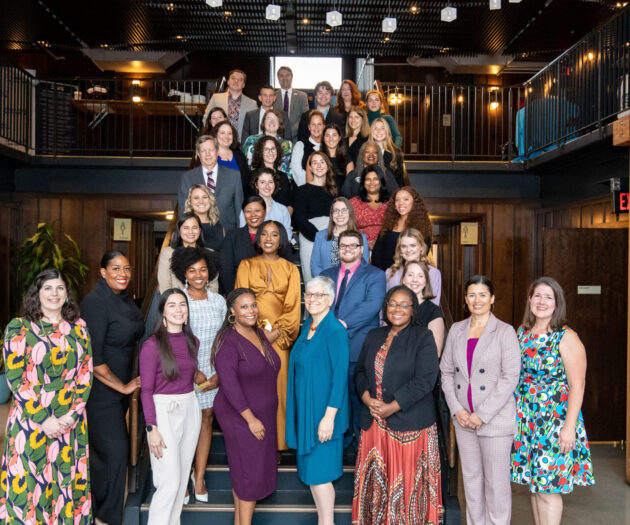NPR Morning Edition: When landlords won’t fix asthma triggers, doctors call in the lawyers
National NPR health reporter Maria Godoy shines a light on Children’s Law Center’s medical-legal partnership, Healthy Together. The segment highlights how our lawyers – who are part of medical teams around the District – step in to advocate for healthy housing conditions. Healthy Together Director Tracy Goodman and attorneys Lacia Japp and Ashley Close speak to the impact of poor housing on a child’s health and how we use the law to resolve the issues that can often exacerbate a child’s asthma.
This summer, doctors at Impact DC, the asthma clinic at Children’s National Hospital, decided Shelly’s daughter needed a different kind of specialist to address this health problem – a lawyer.
That’s how attorney Lacia Japp ended up touring Shelly’s home in late September to check that mold and other health hazards were being fixed. Japp works for Children’s Law Center, a D.C.-based nonprofit legal service organization that fights to improve kids’ health. She’s part of the center’s Healthy Together Program, a medical-legal partnership that works with several D.C.-area clinics [including Children’s National, Mary’s Center and Unity Health Care].
In D.C., a child with asthma who lives in a low-income community is 20 times more likely to end up in the emergency room than a child in a more affluent neighborhood. Similar disparities in the burden of childhood asthma occur throughout the U.S. One major driving factor is poor housing conditions.
“It could be mice, infestation, rats, roach infestation – it could be a lot of water damage that creates mold and all of that. All of those are allergens and that can exacerbate the child’s asthma,” says Tracy Goodman, a lawyer who has directed the Healthy Together Program since its launch more than two decades ago.
The lawyers try to push landlords to make repairs and address infestations voluntarily. “And the hope is the landlord will then fix everything. And occasionally that happens. But that’s very rare,” says Ashley Close, another lawyer with the program.
If the landlord doesn’t comply, they’ll take them to a special housing conditions court to force them to make repairs.
The segment also highlights how these these interventions can be cost-effective. Our research found that, in the 18 months after a legal intervention, managed care organizations spent an average of $10,000 less on health care for kids with asthma, mostly due to reduced hospital visits. For children with the most severe asthma, the savings were around $60,000.
Listen to the segment:

Support Our Work
DC families turn to us when their housing conditions harm their child’s health. Support our work this holiday season so we can continue to use the law to improve the health of children like Deveah.

Join Us
At Children’s Law Center, we are always looking for talented, passionate individuals committed to making a positive impact on DC our community. Click here to learn about our open positions.